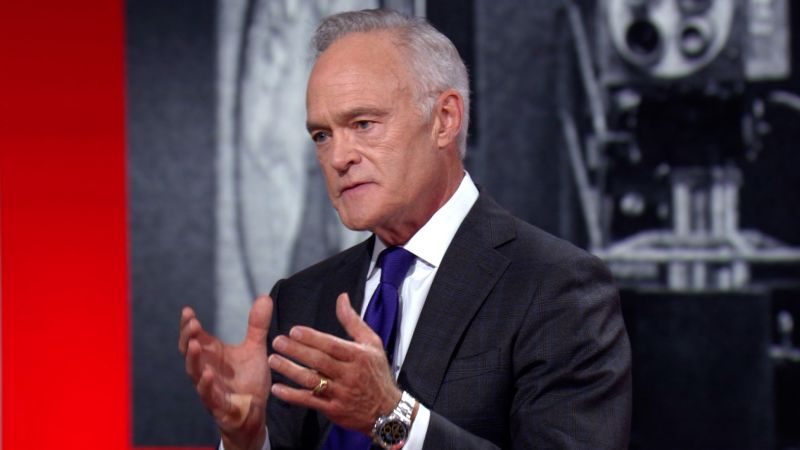In a profound examination of the current state of free expression in the United States, CBS News correspondent Scott Pelley has voiced concerns about the growing “climate of fear” that is palpable in contemporary society. In an exclusive interview with Anderson Cooper, Pelley articulated that many people are silencing themselves, apprehensive of potential government retaliation for their opinions. He emphasized that this environment of fear is counter to the ideals of America, a country that prides itself on freedom of speech and expression. This reflection arose in the context of a Broadway play that dramatizes the fearless broadcasts of CBS newsman Edward R. Murrow, who in 1954 took a stand against Senator Joseph McCarthy’s infamous anti-communist witch hunts.
Pelley drew parallels between the historical context of McCarthyism and what some have termed Trumpism, stressing that fear and courage are prevalent themes in both periods in American history. He underscored the pivotal importance of having the courage to speak out, championing the belief that if citizens allow fear to dictate their silence, then the very foundation of democracy is at risk. “If you fall silent, the country is doomed,” he asserted, reinforcing the vital role that unfiltered communication plays in maintaining a free society.
Cooper, also a prominent figure in journalism, further probed Pelley about his faith in journalism’s role within democracy. Pelley responded emphatically, declaring that journalism is critical to the very survival of democracy. Without a robust and independent press to hold power accountable, the concept of democratic governance becomes untenable. The conversation also touched on the state of journalism amidst a backdrop of political pressure, particularly referencing the tumultuous relationship between President Donald Trump and CBS News.
The dynamics of this relationship became especially fraught when Trump initiated a legally dubious lawsuit against CBS following a contentious “60 Minutes” interview with then-Vice President Kamala Harris. The lawsuit triggered a wave of discussion among CBS journalists and executives, many of whom felt the need to combat the allegations of election interference posited by the administration. However, some executives at CBS, under the umbrella of its parent company Paramount Global, were rumored to be seeking a settlement with Trump, perhaps out of a concern that a continued conflict could jeopardize a crucial merger with Skydance Media.
The implications of such settlements could be damaging, Pelley warned, cautioning that they might appear to journalists as a form of extortion. According to sources at CBS, the consensus among correspondents was clear: any payment made to settle the lawsuit would be viewed as a profound betrayal of journalistic integrity. When Cooper inquired about what Murrow might think of the current situation at CBS, Pelley commented that Murrow would likely advocate for a fight rather than surrender.
In discussing media leadership, particularly in light of the resignation of “60 Minutes” executive producer Bill Owens, Pelley noted that Owens felt he could no longer operate with the independence that authentic journalism necessitates. Although some correspondents considered following Owens out the door, they decided against it after Owens expressly requested them to stay. Pelley articulated a complex relationship with leadership, acknowledging the desire for strong institutional support while also appreciating the freedom that allows his work to air uninterrupted.
Pelley stirred dispute with a recent commencement address at Wake Forest University, where he spoke against the backdrop of growing anti-intellectualism and attacks on journalism, albeit without directly naming Trump. He opined that efforts to manipulate truth and ensnare journalists in lawsuits are tactics used to maintain power. He echoed sentiments from the 1950s, asserting that the crux of an enduring democracy lies in the preservation of free speech.
Reflecting on these pressing issues, Pelley concluded with a poignant reminder about the dangers of suppressing speech, asserting that fear transcends political leanings. “You can agree with the government. You can disagree with the government. But you have the right to speak no matter what your opinion is,” he proclaimed. He questioned why there should be controversy surrounding a speech that emphasizes the fundamental importance of free expression, prompting deep reflection on the state of public discourse in America today.



